The land would be earmarked for a “transit-oriented development” designed to combine a larger transit center with affordable housing and commercial space.
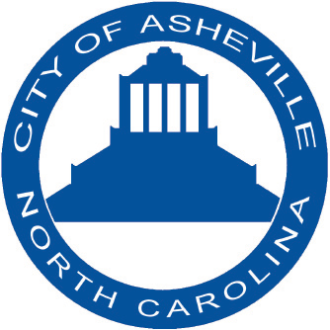

The land would be earmarked for a “transit-oriented development” designed to combine a larger transit center with affordable housing and commercial space.
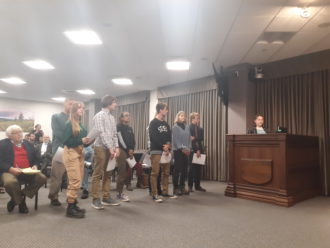
Many public commenters urged the commissioners to act even more decisively on transitioning away from fossil fuels in the context of climate change. Chloe Moore with the Sunrise Movement referenced a scientific paper, published earlier that day, in which over 11,000 scientists from 153 countries declared a “climate emergency” and warned of “untold suffering due to the climate crisis” if stronger measures were not taken.

Asheville’s current short-term rental rules do not allow homestays to offer rooms that contain either a stove, a full-sized refrigerator or a kitchen sink. A new definition of “kitchen,” proposed by local host organization the Homestay Network, would still forbid stoves in homestay dwellings but allow sinks and refrigerators.
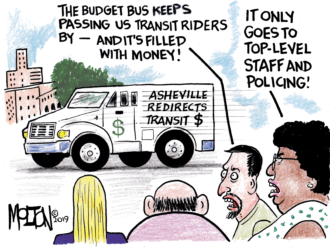

What does transit — and the city’s support of its bus network — mean to Asheville? Xpress talked to residents with different perspectives to better understand Asheville Redefines Transit’s role in the community.
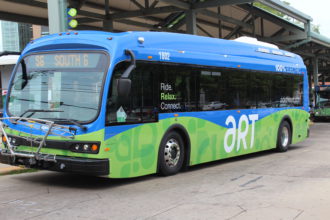
Questions linger about the buses’ capability to keep up with their diesel and hybrid counterparts on Asheville’s demanding roads. Issues with the length and battery life of the vehicles have led city officials to delay the planned purchase of three more electric units.
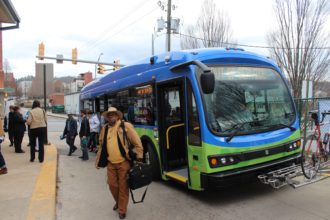
Even accounting for the fossil fuels needed to generate the electricity they will use, said Council member Julie Mayfield, each vehicle will produce 54 fewer tons of annual carbon emissions than one of Asheville’s current buses. Once all five buses hit the streets, the total emissions savings of 270 tons will make up a third of the city’s annual carbon reduction target.

2019 prediction: Town of Biltmore Forest will greatly expand its influence in county government by allowing trees to vote.
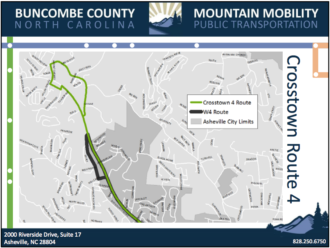
Buncombe County Board of Commissioners members expressed their concerns over the city’s impending requests for county funds to expand its Asheville Redefines Transit service. “This is Buncombe County; it’s not the city of Buncombe,” said Commissioner Mike Fryar.

ASHEVILLE, N.C.

Transit advocates called for the city to more strictly enforce its contract with RATP Dev, which manages the ART system, citing 539.5 hours of missed service in July. But city staff said the management company “is making a good-faith effort to work with us” and does not currently plan to assess a number of penalties.
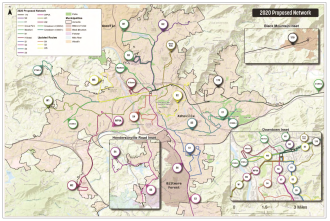
The ambitious proposal would increase bus service hours by 44 percent starting in fiscal year 2020, construct a new $50 million operating facility by 2024 and double the current fleet by 2029. Elias Mathes, transit planning manager for the city, says these bold changes are needed to make Asheville Redefines Transit a viable alternative to automobile commuting for the city’s future.

Asheville-area initiatives are seeking to connect food-insecure communities with fresh, locally grown food while also supporting WNC farmers.
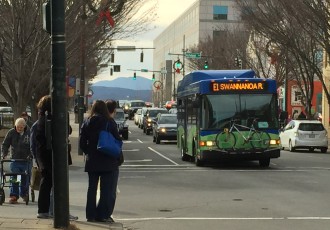
Asheville as we know it today was built upon the back of its electric streetcar system, one of the largest networks of its time. As the city finds itself in a growth spurt once again, could its defunct trolley system provide some clues to Asheville’s transit future?

At its Jan. 23 meeting, Asheville City Council could formally accept an investment of $4.6 million from the Buncombe County Tourism Development Authority to help complete the southern section of the the River Arts District Transportation Improvement Project.
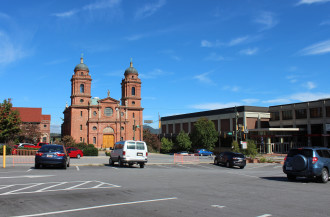
Signs of spring: the city considers its budget for the upcoming fiscal year, and citizens amass their forces to resume the fight over the fate of city-owned land on Haywood Street and Page Avenue. Asheville City Council will meet on Tuesday, March 28 to consider these and other matters. The budget meeting will take place at 3 p.m. in Council Chambers, with the formal meeting commencing at 5 p.m.
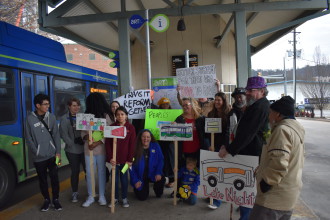
Expanded bus routes and hours could help more Asheville residents gain consistent access to healthy food. But a more effective city transit system may be a little way down the road.

Scores of Asheville residents met with city staffers and representatives from Nelson Nygaard, a national transportation consulting firm, on Wednesday, August 17 to learn about and provide feedback on an early-stage proposal on instituting a city shuttle service in and around downtown Asheville.
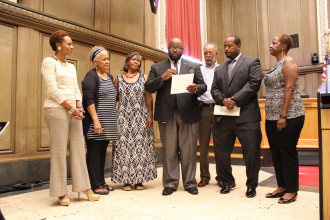
City Council approved four rezoning requests at its regular meeting on June 28, including a 272-unit apartment complex on Mills Gap Road that generated considerable public opposition when it was first proposed. Developer Rusty Pulliam appeared to have won over many members of the community by adding traffic mitigation measures at the intersection of Mills Gap and Sweeten Creek roads, delaying construction until 2018 and by committing 15 percent of the units as affordable housing for 15 years.
May 19 was Transit Rider Appreciation Day and Asheville’s buses were free, so I rode as many routes as I could, viewing the city through the windows. It was foggy as I waited for the S3 inbound on Hendersonville Road. I was beginning to think I’d missed it when the driver spotted me in the fog […]
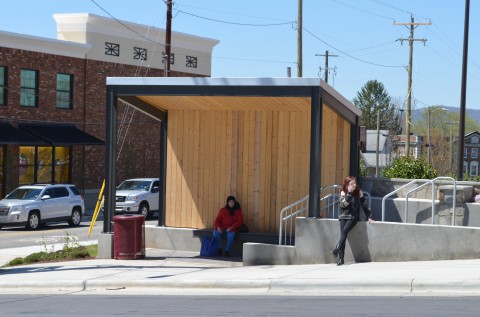
Buncombe Commissioners acted April 15 to build a new bus shelter, restructure the county’s fire districts and prevent the FDA from implementing new rules that could hamper local brewers’ ability to sell spent grains to farmers for animal feed.